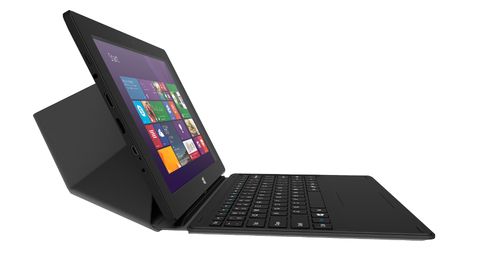Why you can trust TechRadar
We liked
The Element 10.1 looks really good. Its glossy black bezel and rubberised rear panel are better than the typical design on cheaper Android tablets, and it feels great to hold.
Likewise, although the screen isn't particularly high resolution, it's bright and colourful, and responds to touch gestures within the Modern UI fluidly.
It's also great that the Element 10.1 runs full Windows 8.1, so all your favourite desktop apps can be installed. Whether they will run well is a different question though.
The battery life is also pretty good, perhaps not the longest of any portable device, but it's perfectly reasonable to expect the Element 10.1 to go for longer than five hours, which is better than previous generations of Windows tablets.
Finally, the pricing is more than competitive. An RRP of £239 (around US$400, AU$430) should send shivers up the spine of competing firms, since this tablet competes with every aspect of their offerings, with the bonus of running desktop Windows software as well.
We disliked
Compared with most laptops and even other Bay Trail tablets, the Schenker Element 10.1 is a poor performer. It may run desktop software, but the CPU and graphics performance is too low to expect it to be a full laptop replacement, as Microsoft's Surface is.
The dock isn't the best I've ever used – its weak magnets meant it kept falling off – and the trackpad and keyboard are portable, but not especially comfortable.
Final verdict
It's tough to decide my final thoughts about the Element 10.1, a sure-fire sign I wasn't entirely blown away by it. Although the dock connection could be stronger, the tablet is well built. Performance was really low, but it will work fine for basic tasks such as email and videoconferencing, as well as lightweight x86 software.
Windows tablets have improved in leaps and bounds since the first devices, as Intel's Bay Trail platform has made a big difference to battery life, and Windows 8.1 is now much improved.
My biggest issue is that although I definitely enjoyed using the Element 10.1, I couldn't find one thing I truly loved about it. It does many neat things, but I'm not sure any single aspect of the experience was superior to any other tablet I've used. Sure, it runs desktop software, but is limited in this regard due to the lack of processing power.
That leaves its exceptionally low price as the killer feature, and despite the issues, that alone will be guaranteed to pique the interest of many.

